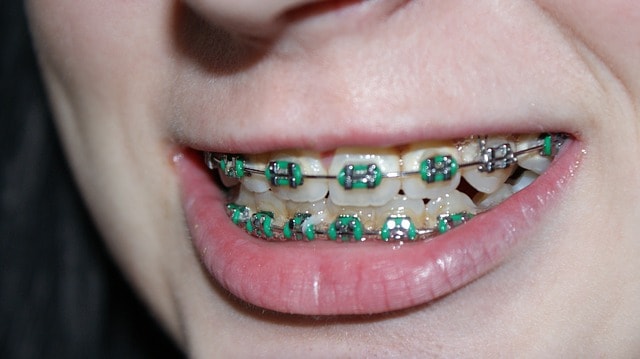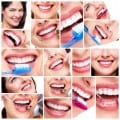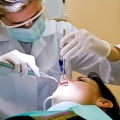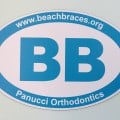Understanding Braces and Speech [Issues]
Last Updated on April 3, 2019 by Guest Post
When you and your children hear that braces are coming up in their near future, you may both have a variety of concerns. For example, kids are often nervous about how they are going to eat their favorite foods. As a parent, you may have concerns about your children’s speech; you may assume that since they are having devices placed on their teeth, they will struggle to speak correctly.
The Truth
You might have heard stories about friends’ children who were negatively affected in terms of speech when they got their dental devices, or you might have simply envisioned these issues yourself. In any case, it is important to understand that these devices generally do not lead to problems with speech. Usually, it is more likely that they will help to ameliorate speech problems in the long term. Regardless of this truth, the rumors about such devices and speech issues continue to persist, so educating yourself is helpful.
Fear of Speaking
When kids have Invisalign or another type of braces placed on their teeth, they may feel uncomfortable speaking. Although these helpful aids for straight teeth have changed so much during their lifetime, people are still ashamed of the way that they look. Breaking through that stigma is so important. After your kids have the tools placed on their teeth, you might notice that they are speaking differently. Instead of blaming the procedure, take a look at how they are talking. You might notice that they are keeping their mouths closed more than usual. In other words, they don’t want people to see their teeth; therefore, they are not fully opening their mouths to speak, resulting in what sounds like speech problems.
Resolution for Fear
If you are certain that the devices are causing the problems with speech, then you should speak to the orthodontist. On top of that, you should also speak to your kids about building up their confidence. Let them know that they are still just as beautiful as they were before. Talk about the importance of living a healthy life and how this procedure is helping them to do so. When your kids know that they are taking a step that is good for their bodies, some of that confidence may start to reappear. You can also tell them how lovely their voices are and how you want to hear their real voices, not muffled versions. Another good idea is to show them pictures of icons who have also worn these devices. In fact, you may want to pull out your own pictures from childhood and explain how you have such straight teeth because of the step you took when you were younger.
Adjustment Period
It’s possible that the devices are causing your children to struggle with their speech, but that doesn’t necessarily mean the devices have caused long-term problems. It may just be an adjustment period. Think about when you put on a new pair of shoes; you have to walk around in them for a bit before they feel right. A similar process is happening here. If your children are speaking slightly differently at the beginning, it might just be that they are getting used to the new tools on their teeth. They have probably never had such a situation before, so they aren’t used to it. An adjustment period is often normal during such processes.
Resolution for Adjustment
You should speak with the orthodontist before the procedure to determine what is normal and what is not. He or she might tell you that your children will have a slight impediment for the first few days or weeks. Then, you know that something is not going wrong during that time period. If an impediment appears without any warning, you can speak with these dental professionals to find out what is going on. They might be able to make adjustments to the tools so that your kids can speak more comfortably, or they may let you know that the issue should subside in a short period of time.
The Planning Stages
Before your children even have these devices on their teeth, you can begin to prepare for possible speech issues. For example, you can ask the dental experts what the chances are that they will have some struggles with speech. Knowing the proper information can help you feel more prepared to handle whatever may arise. Also, you can ask about other options. You may learn that a traditional set is more likely to cause a minor speech issue than Invisalign, or you may discover that the opposite is true. In any case, you might select a method of treatment based on how much it will affect your children’s speech. Keep in mind that not all patients are candidates for all procedures. It depends on their specific conditions.
Plan Ahead
You can also plan ahead to make sure that any potential speech issues affect your children’s lives as minimally as possible. For example, your kids might be stars in the big school play that is coming up in a month. As long as your dental professional says that you have the flexibility to do so, you may want to wait until that show is over. In a number of cases, symptoms seem worse when people have something upcoming to worry about. Your children may notice a minor speech impediment more if they know they are going to have to talk in front of a large group soon.
While these devices can cause some issues with speech, that is not usually what happens in the long term. In the event that your kids have short-term issues, they are generally fairly easily resolved. Therefore, you don’t have to worry about constantly stressing when it comes to this issue. You can speak to the dental professional before the procedure to plan, and you can stay in touch after it.
When you have questions and concerns about these issues, you can schedule an appointment with Dr. Panucci to answer your inquiries and ease your concerns.
Beach Braces Orthodontics
220 N. Aviation Blvd
Suite A
Manhattan Beach
CA 90266
Phone: (310) 379-0006
Understanding Braces and Speech [Issues]

Dr Patti Panucci attended the University of Louisville School of Dentistry for four years, where she graduated with a DMD degree (May 2000) among the Top 10 in her class. Following that, she headed west to Los Angeles to complete her three-year residency at one of the top-ranked orthodontic programs in the country – the University of Southern California.
Along with her certificate in orthodontics, Dr. Panucci earned a master’s degree in craniofacial biology. During those three years, she fell in love with Southern California beach life and decided that this was where her future lay.













Leave a Reply
Want to join the discussion?Feel free to contribute!